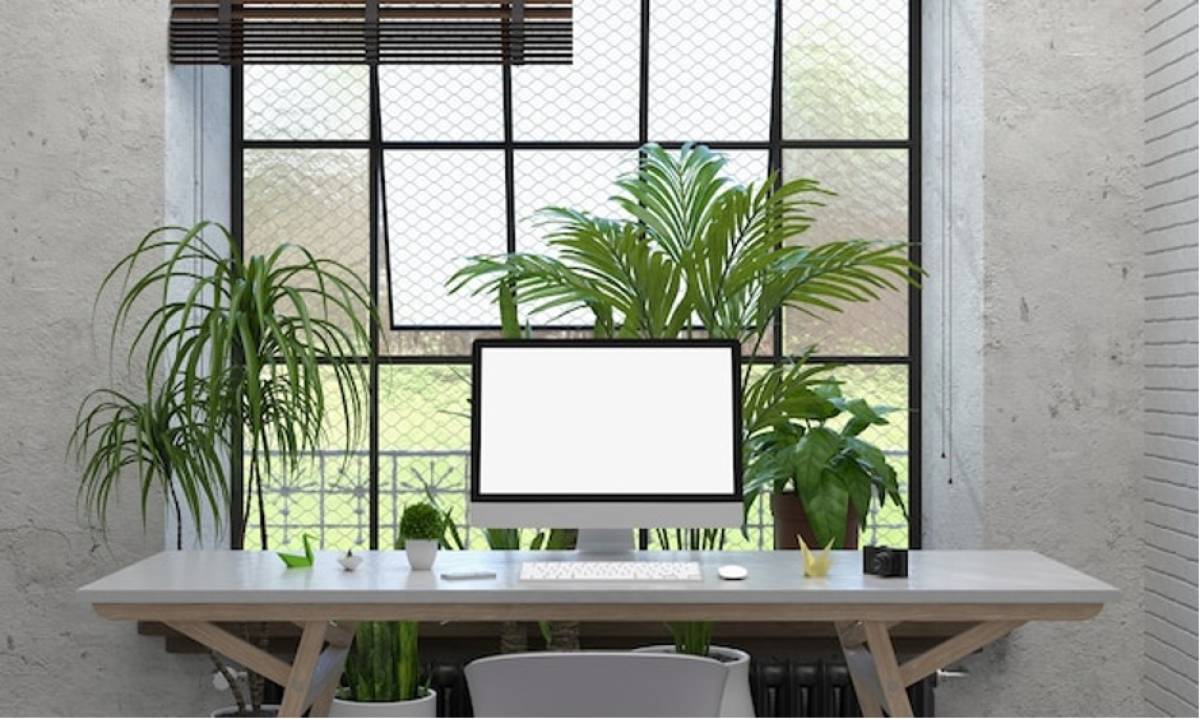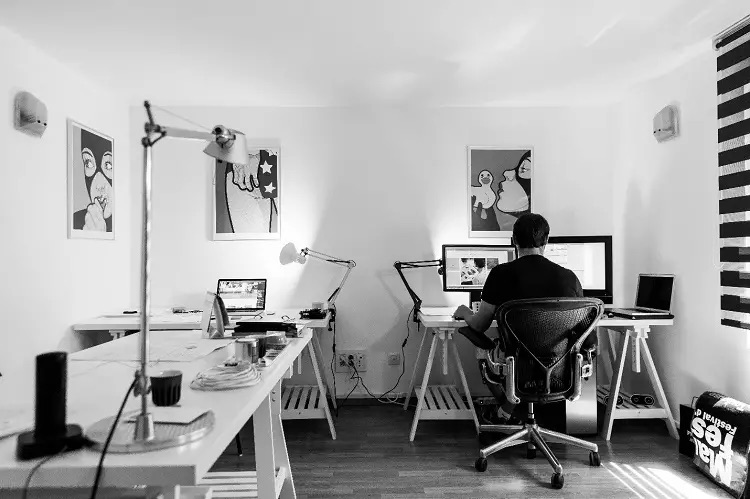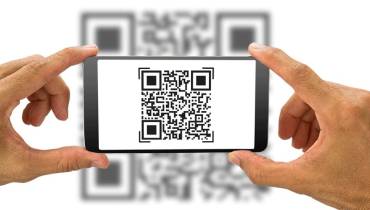5 Things You Need in a Home Office to Boost Wellbeing & Productivity

Successful work-from-home professionals and entrepreneurs pay close attention to the design and set up of their home office. That’s because the right workstation keeps you motivated and productive. The wrong workspace is bad for your body, mind, and bottom line.
You probably already know about the standard home office items: computer, desk, and a fast internet connection. But other less talked about things are just as important.
When you have all the right items in your home office, you can transform it into an uber-productive, healthy, and inviting workspace. Without some home office essentials, you’ll likely to end up with a soul-crushing, time-wasting cave.
So, get out your office depot list and check these essential things every work-from-home dad, mom, and entrepreneur needs for their home office to boost good health and productivity.
Essentials for a Productive Home Office

1. Clean, Inviting Environment
Your home office isn’t just the “spare room.” It’s a vital part of your success. Treat it that way and create a stimulating and inviting ambiance that supports your well-being and reflects you.
Keep your home office clean and tidy always and add some greenery. Studies show the benefits of plants within the workplace include boosting creativity, mood, and productivity. Colors other than green are beneficial too.
Hang a few pieces of artwork that burst with blues, reds, and yellows to boost mood and creativity. Swap your art out for other pieces when things get boring.
You can also engage your sense of smell with essential oils. Smells have a profound effect on our mood and physical well-being as well. The right smells from herbs and essential oils in the workplace can even improve your immune system and lower your blood pressure.
Moreover, consider installing a humidifier for your home office if you haven't installed one yet. Though they are often overlooked, humidifiers are essential for your home’s health. Humidifiers help the body’s immune system and guard against irritants. Proper moisture levels can also combat muscle and joint pain, as well as making sinus pain and irritation a thing of the past.
2. Good Lighting
The right lighting increases your productivity and boosts your mood. Workplace studies show that optimized natural lighting improves health and wellness. It also decreases eyestrain, headaches, and drowsiness in workers.
Position your main workspace near a natural light source like a window or sliding glass door. To avoid glare, place your monitors at a 90° angle to the source or use an anti-glare filter.
Next, add some blue artificial lighting via a small desk or floor lamp. Use daylight LED bulbs rated at around 5,000k. These blue colored lights emit daytime light wavelengths, keeping your circadian rhythm on track. And they’re energy-efficient too!
3. Cloud-Based Data Backup
External hard drives and paper copies are effective ways to backup your data, but they’re not enough protection.
Too many threats to physical backups exist so you shouldn't rely on them alone. For example, floods, theft, or hard drive crashes can ruin more than your day; they can also destroy physical backups and cost you clients.
Use cloud backup services like Google Drive (15Gs of free storage space) to store your documents, files, and pics. You can also use a cloud-based software like Microsoft Office 365, which offers you 1TB OneDrive for easy data syncing and storage.
4. Time Tracker
If you’re a freelance or contract worker, you need to track your project hours to know if you’re charging too little or over-delivering. As the old saying goes, "Time is money."
Tracking your time doesn’t take much effort. If you prefer an analog approach, pick up a digital timer for a few bucks. Or try a free time tracking app like Toggl that works in your browser and syncs between devices.
Timers keep you efficient, but they also help you combat a common workplace problem — working too much. Use a timer to set intermittent break periods and hard stops at the end of the day.
5. UPS
You need a UPS. No, not the package carrier — an “uninterruptible power supply.” These heavy-duty power strips keep your computer and monitor working during an outage.
If you’re in the middle of uploading important documents, a power cut means you’re leaving your client hanging. And a sudden power outage may wipe out unsaved documents and hours of work.
Some UPS models come with surge protection too. They save your computers, monitors, and modems from sharp fluctuations in power that can fry their circuits.
You can spend anywhere from $45 to $350 on a UPS, depending on your needs. But they’re definitely cheaper than buying a new computer or losing a client.
Conclusion
As every entrepreneur knows, building and scaling a business is not a simple task. Creating an environment where you can succeed can, therefore, make all the difference, not only for your bottom line, but also for your well-being.
With the aforementioned home office essentials, you’ll be on your way to building the home office that boosts productivity, wellbeing, and helps you achieve your goals.

 Brandon Jarman is a freelance writer with a passion for technology, business, and entertainment. He spends his free time lifting weights, traveling, watching Netflix, and eating delicious Mexican food. Follow him on Twitter
Brandon Jarman is a freelance writer with a passion for technology, business, and entertainment. He spends his free time lifting weights, traveling, watching Netflix, and eating delicious Mexican food. Follow him on Twitter 


















